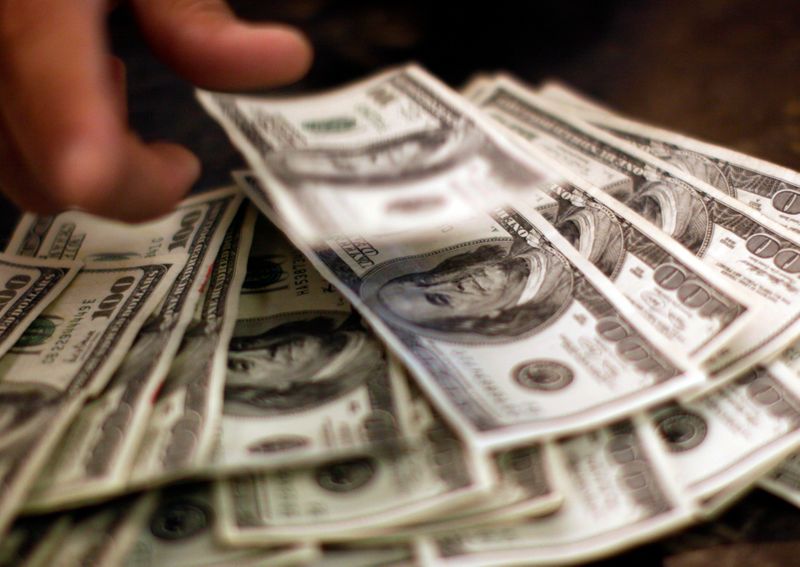Investing.com – The U.S. dollar traded higher in the early European session Thursday, adding to the previous day’s gains after Fed Chair Jerome Powell reaffirmed that more rate increases are likely as the leaders of the major central banks sent hawkish signals from the European Central Bank’s annual gathering in Sintra.
At 02:00 ET (06:00 GMT), the , which tracks the greenback against a basket of six other currencies, traded 0.2% higher at 102.797, after climbing 0.5% overnight.
Powell backs up ‘higher for longer’
, speaking at the ECB conference on Wednesday, noted that two more rate rises are likely this year, with an increase at its next policy meeting in late July still a possibility.
In addition, Powell also said he does not see inflation coming down to the Fed’s 2% target until 2025, adding credence to the concept that interest rates will stay ‘higher for longer’.
Friday’s release of the , the Fed’s favorite gauge of inflation, and then the for June, which is due out at the end of next week, will make up two big data points for policymakers to consider at the July meeting.
However, before that, Thursday sees the release of another reading of the first quarter’s growth, which is expected to show an increase of 1.4%.
German inflation numbers due
Back in Europe, ECB President said that underlying inflation in the euro zone still remains too high and there wasn’t enough proof to suggest that it has embarked on a downward path.
A July ECB hike is almost a done deal, especially after the latest data from the German state of North Rhine Westphalia, the country’s most populous state, showed consumer prices rising 0.3% on the month in June, an annual rise of 6.2%, above last month’s 5.7%.
Inflation data from the whole of as well as are due later in the session, and could influence the euro, with currently trading 0.2% lower at 1.0886.
fell 0.2% to 1.2620, with Bank of England Governor also hinting at more interest rate rises to come, even after the bank surprised with a 50-basis-point hike earlier this month.
U.K. remained at 8.7% in May, the highest of any major advanced economy, and Friday’s first-quarter release is set to show that growth remains hard to find.
Bank of Japan remains an outlier
The one major outlier from the central banks’ hawkishness came from BOJ Governor Kazuo Ueda, who reiterated that “there’s still some distance to go” in sustainably achieving 2% inflation.
rose 0.1% to 144.56, with the yen near lows against the dollar not seen since November last year, trading close to levels that could prompt intervention from Japanese authorities to help prop up the beleaguered currency.
The ministry of finance and BOJ intervened in the currency market last autumn when the dollar strengthened beyond 145 yen.
Elsewhere, the risk-sensitive rose 0.2% to 0.6614, helped by stronger-than-expected data for May, while rose 0.1% to 7.2491, with the yuan near an eight-month low ahead of Friday’s key data for June.
Read the full article here





